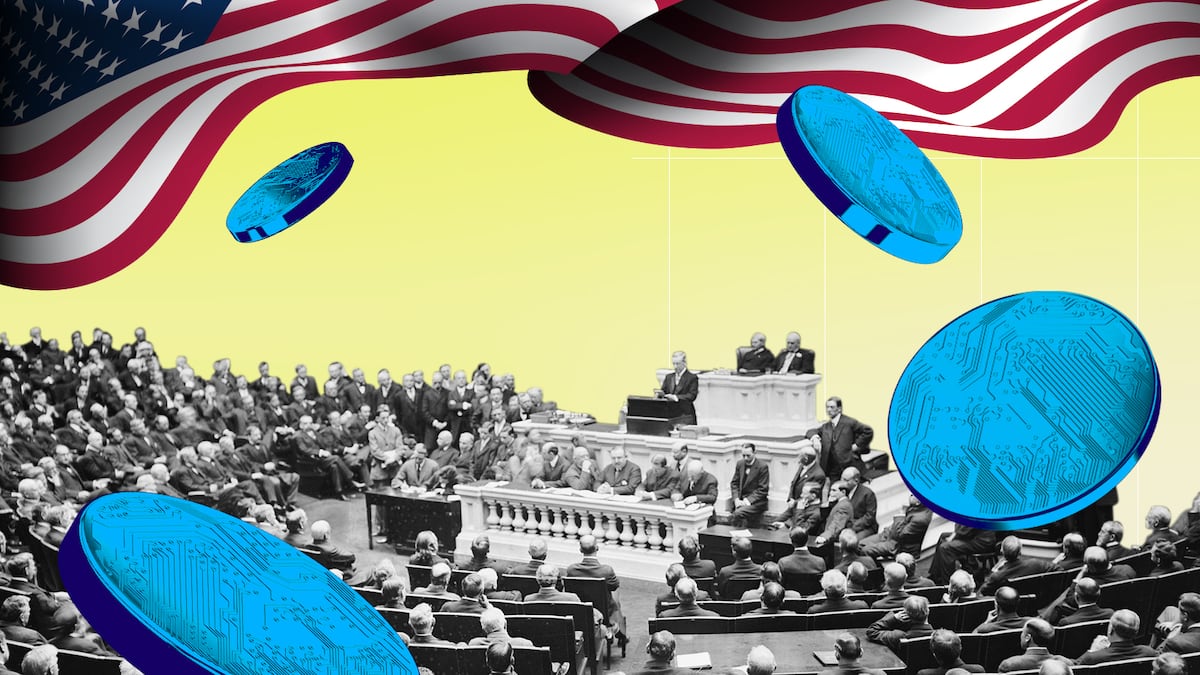- After clearing the Senate, the Genius Act is poised to be passed by the House.
- The Clarity Act would ease rules for many blockchain projects.
- Legislation would permanently block a US central bank digital dollar.
President Donald Trump’s campaign promises to the crypto industry will soon face their first real test in Congress.
Members of the US House of Representatives will hold a “Crypto Week” starting July 14, with lawmakers set to vote on three major pieces of legislation that could reshape the digital assets industry.
At the centre of the push are the Genius Act, the Clarity Act, and the Anti-CBDC Surveillance State Act. Each addresses different pieces of the US crypto regulatory puzzle.
Crypto attorney John Deaton argues that getting these bills signed into law would make it “highly unlikely” for any future administration to reverse course.
“The toothpaste will be out of the tube,” he wrote in a post on X.
The votes will come hot on the heels of Trump’s victory in pushing through his sweeping “big, beautiful bill” of tax and spending cuts on Friday.
The Genius Act
The Genius Act, already passed by the Senate, would set federal standards for US dollar-backed stablecoins, with issuers above a $10 billion threshold facing regulation from the Federal Reserve and Office of the Comptroller of the Currency.
Smaller issuers would be able to opt for state-level oversight, a move supporters say encourages competition and innovation.
But House leaders are weighing whether to adopt the Senate bill as-is or press ahead with their stricter Stable Act, which leans more heavily on federal supervision, prohibits algorithmic stablecoins for two years, and mandates anti-money laundering compliance.
Insiders are expecting some form of reconciliation between the two bills if the House advances its version.
The Clarity Act
The Clarity Act, which passed two key House committees last month, is designed to finally settle the question of how digital assets are regulated in the US.
The bill would largely hand oversight of the crypto industry to the Commodity Futures Trading Commission while easing rules for blockchain systems that meet its definition of decentralisation.
Republican lawmakers argue the bill provides long-overdue certainty for innovators and developers building in the space.
But some Democrats warn the decentralisation provisions could create a “huge loophole,” making it easier for crypto firms to sidestep oversight.
The bill lets organisations apply for “mature blockchain” status, which brings lighter rules and fewer DeFi restrictions.
Critics say this would overwhelm regulators and invite abuse.
Anti-CBDC Act
One of Trump’s earliest crypto-adjacent campaign promises — to block a digital dollar central bank digital currency — is also set for a House vote.
The Anti-CBDC Surveillance State Act would turn his January executive order into permanent law, prohibiting the Federal Reserve or any other US agency from issuing a central bank digital currency.
CBDCs are government-issued digital money. It’s a concept supporters say could modernise payments, but critics argue would give the state unprecedented control over how people spend and save.
Supporters of the bill argue that a CBDC would threaten privacy and individual financial freedom, with the bill’s author, Representative Tom Emmer, calling them an “Orwellian surveillance tool.”
Kyle Baird is DL News’ Weekend Editor. Got a tip? Email at kbaird@dlnews.com.









